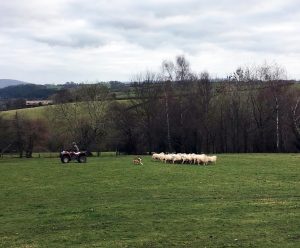
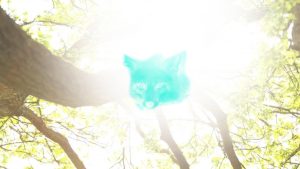
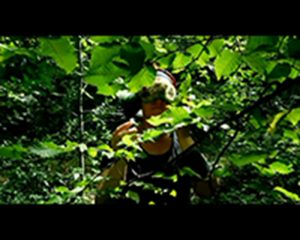
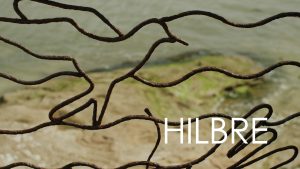
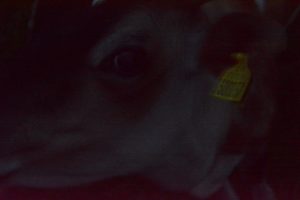
The nature documentary is currently enjoying a wave of popular interest. In times of ecological devastation, mass extinction and ever-greater alienation from non-human life processes, this is perhaps not surprising. The form of the nature documentary, however, should not be settled, and nor should its subject matter.
In the year of Margaret Tait’s centenary, Hundred Years Gallery invites film-makers to present work which would fit within an expanded conception of the nature documentary. The mundane as much as the exotic, the disgusting as much as the beautiful, the pest as much as the pet, the domestic as much as the wild, the urban as much as the rural, the human as much as the non-human, the non-living as much as the living: all these and more should be within our scope.
The screenings will be followed by an open discussion chaired by the writer Phoebe Campion, in which we will respond to the works and ask questions of the medium: Why make nature documentaries? Why nature? Why documentary? What might ‘nature documentary’ be able to achieve? Is it a tool of the archive, or of advocacy? Of art, or of science?
Free Entry.
Programme (~1 hr.)
We Burn Daylight – Kathleen Bryson and Gwynfryn Thomas
We Burn Daylight plays with the ideas of prehistoric imagination and illusion, particularly early Neanderthal culture, questioning our species’ insistence on being the only ones to truly love, mourn and imagine other worlds.
Hilbre – Andrew Schonfelder
Hilbre Island is a rare sliver of wilderness in the heart of industrial northern England. In the words of entomologist Edward Wilson, “mysterious and little known organisms live within walking distance of where you sit. Splendour awaits in minute proportions.” Like a faded postcard from a half remembered summer, it’s a Proustian moment disguised as a natural history film.
Mervyn Diese
Three films: Working Bees, Night Rain, and Sometimes it Rains in Paradise
Exercises in Conscious Listening: Forest and Tonic Mass – Monika Tobel
“Exercises in Conscious Listening: Forest” is the first part of a series of exercises, devised to create a non-hierarchical connection, a non-lingual communication between human/ non-human/ more-than human inhabitants of the environment.
“Tonic Mass” is a meditation on Michel Serres’ Fold theory, in regard to the non-lineal nature of history and the connectedness of all in an ecological sense.
Living and Dying on the Maescoed – Kate Kotcheff
This short film is about the everyday way of life of a disabled sheep farmer called Leslie Jones who lives in Lower Maescoed, a remote smallholding in Herefordshire. Leslie is disabled because in the 1980s, farmers were forced by law to use ‘sheep dip’ which protected the sheep against parasites but sadly it contained a highly toxic organophosphate compound, destroying her health, along with thousands of other farmers.
hankering, gross, mystical, nude – Alex McDonald
An observation of dairy cows.
Biographies
Alaskan-born novelist Kathleen Bryson’s feature film directorial debut, The Viva Voce Virus (co-directed with Kimmo Moykky), had its world premiere as the POWFest Pick for the Siren Nation Film Festival in 2008. Kathleen was subsequently accepted to Berlinale Talent Campus 2009, the Berlin International Film Festival’s up-and-coming directors’ and screenwriters’ program. Her second feature collaboration with Moykky, Baked Alaska (with Moykky as co-director and Bryson as co-director, screenwriter and lead actor) has just completed post-production. She has directed multiple short films and acted in several feature films.
Gwynfryn Thomas mainly writes. His poems have appeared in a handful of magazines, while he has appeared in other people’s films. We Burn Daylight combines his love of anthropology, evolution and stories.
Bryson and Thomas both received their doctorates in Evolutionary Anthropology at University College London.
Andrew Schonfelder started his career in the music industry, working as a roadie, recording engineer and ultimately technical manager of London’s largest independent recording studio. In 2005 he returned to university to study Photographic Science. After graduating he started Light and Time Imaging and has since established himself as a talented cinematographer and colourist, working on documentary features and natural history television, dramatic shorts and music promos.
Monika Tobel: “I am a London based Hungarian multidisciplinary artist exploring nature-culture and species barriers. I am interested in breaking down these barriers, mainly by devising exercises that help me to de-learn and re-learn prescribed ideals of how to relate to the environment and its inhabitants, in order to develop a new non-hierarchical way of being in the world.Originally a painter, I have worked in a multitude of media throughout the years. Due to a conscious decision to stop making unnecessary objects I moved towards non-material processes such as video, performance and sound.”
Mervyn Diese is a British cross platform creative who publishes in many formats. He makes small independent films about life and local events, as both a document and an artistic coment on life.
Born in London, Kate Kotcheff originally studied architecture. In June 2012, she completed a BA (Hons) Degree in Fine Art (Photography) at the Sir John Cass Department of Art, Media and Design. She has exhibited widely in group shows in East London. Kotcheff took part in a participatory practice group ‘Post Autonomy’, that exhibited at the Venice Biennale 2013. In 2014 Kotcheff was an artist in residence in Schwedt, Germany, that invited artists to respond to an archive of GDR art works, as part of the 25th anniversary of the Reunification. Kotcheff exhibited at the Venice Biennale in 2017 as part of Empire II, a group show of artists moving image work. She is now currently completing an MA in Ethnographic Documentary Film by practice at UCL.
Alex McDonald is preparing a master’s dissertation on human-animal relations on a Welsh farm. His next film work will be a study of grass on Blackheath.
Phoebe Campion is a graduate student at the University of Cambridge, working at the intersection between literature, visual culture and the GeoHumanities. She is currently pursuing doctoral research on contemporary Radical Landscape Poetics, and has written on film and literature for publications such as Another Gaze, Elephant Magazine, The Kings Review, etc.

